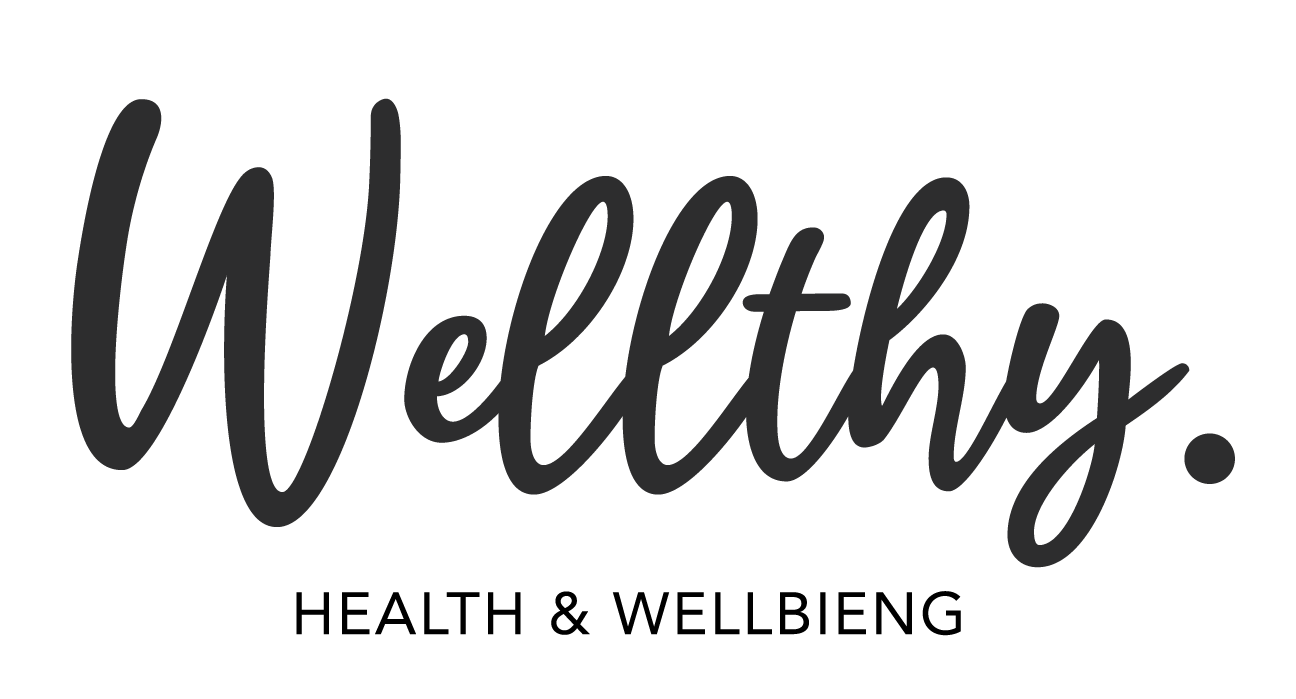Holistic health beliefs in modern society have reshaped the way individuals approach wellness, emphasizing a comprehensive and interconnected view of health that goes beyond traditional medicine. In today's fast-paced world, where stress, lifestyle-related illnesses, and mental health challenges are prevalent, the holistic approach offers a holistic solution to address these issues. From ancient healing traditions to contemporary integrative practices, the concept of holistic health beliefs has gained traction as individuals seek a balanced and harmonious way of living. Let's explore how embracing holistic health beliefs can empower individuals to enhance their overall well-being and quality of life in today's modern society.
Understanding Holistic Health Beliefs in Modern Society
Holistic health beliefs in modern society encompass a comprehensive approach to health and well-being that goes beyond just physical symptoms. It acknowledges the interconnectedness of the mind, body, and spirit, emphasizing the importance of treating the whole person, not just the individual parts.
Exploring the Concept of Holistic Health BeliefsHolistic health beliefs draw from traditional healing systems and practices, such as Ayurveda, Traditional Chinese Medicine, and Indigenous healing methods. These approaches prioritize harmony and balance within the body and with the environment.
Importance of Incorporating Holistic Approaches in Modern LifeIn today's fast-paced world, stress, and lifestyle-related illnesses are prevalent. Embracing holistic health beliefs can provide individuals with tools to manage stress, improve overall well-being, and prevent illness.
Historical Roots of Holistic Health BeliefsAncient civilizations across the world have long recognized the importance of holistic health. From Greek medicine to Indigenous healing practices, these traditions emphasized the interconnectedness of physical, emotional, and spiritual health.
-
Greek Medicine: Hippocrates, the father of Western medicine, believed in treating the whole person, not just the disease.
-
Ayurveda: Originating in India, Ayurveda promotes balance through diet, lifestyle, and herbal remedies.
-
Traditional Chinese Medicine: Acupuncture, herbal medicine, and qigong are integral parts of TCM, focusing on energy flow and balance.
Understanding the historical and cultural foundations of holistic health beliefs can provide insight into their relevance and effectiveness in modern society. For further exploration, you can refer to the National Institutes of Health's article on Complementary and Integrative Health Practices.
Benefits of Embracing Holistic Health Beliefs in Today's World
Incorporating holistic health beliefs into one's lifestyle can have multifaceted benefits that positively impact overall well-being and quality of life.
Improved Physical Well-being through Holistic Practices
-
Holistic approaches such as yoga, tai chi, and mindfulness meditation can enhance physical health by reducing stress, improving flexibility, and boosting immune function.
-
Nutritional choices that align with holistic principles, such as consuming whole foods and organic produce, can support optimal physical vitality.
Enhancing Mental Health with Holistic Approaches
-
Practices like meditation and breathwork not only reduce stress but also enhance mental clarity, focus, and emotional regulation.
-
Holistic therapies like aromatherapy and energy healing can promote relaxation, reduce anxiety, and improve overall mental well-being.
Strengthening Emotional Resilience with Holistic Beliefs
-
Holistic health beliefs encourage individuals to cultivate positive emotions, practice self-compassion, and develop coping strategies for life's challenges.
-
Engaging in holistic practices that promote emotional wellness, such as journaling, art therapy, and nature walks, can enhance emotional resilience and inner strength.
By embracing holistic health beliefs in today's world, individuals can experience a holistic transformation that supports their physical, mental, and emotional well-being. For further information on the benefits of holistic practices, you can explore the Mind Body Institute's resources on holistic health and wellness.
Challenges and Misconceptions Surrounding Holistic Health Beliefs
Despite the numerous benefits of embracing holistic health beliefs in modern society, there are common challenges and misconceptions that individuals may encounter on their holistic wellness journey.
Addressing Skepticism Towards Holistic Practices
-
Holistic health beliefs often face skepticism from individuals who have not yet experienced or understood the holistic approach to wellness.
-
Lack of scientific validation and traditional Western medicine's dominance may contribute to skepticism towards holistic practices.
Overcoming Barriers to Adopting Holistic Health Beliefs
-
Time constraints, lack of awareness, and cultural stigmas can act as barriers to individuals embracing holistic health beliefs in their daily lives.
-
Educating individuals about the evidence-based benefits of holistic practices and providing accessible resources can help overcome adoption barriers.
Debunking Common Myths Related to Holistic Approaches
-
Myths such as holistic practices being solely based on pseudoscience or being exclusively alternative to conventional medicine need to be addressed.
-
Understanding that holistic approaches can complement traditional medical treatments and promote overall well-being is crucial in dispelling misconceptions.
When individuals navigate through the challenges and misconceptions surrounding holistic health beliefs, they can unlock the transformative power of holistic practices and achieve holistic well-being. For additional information on debunking myths about holistic health, you can refer to the Mayo Clinic's article on complementary and alternative medicine.
Integrating Holistic Health Beliefs into Daily Lifestyle
Incorporating holistic health beliefs into daily routines can foster holistic well-being and a balanced lifestyle that nurtures the mind, body, and spirit.
Incorporating Mindfulness and Meditation Practices
-
Practicing mindfulness in everyday activities can enhance present-moment awareness, reduce stress, and promote mental clarity.
-
Engaging in meditation sessions, even for a few minutes each day, can cultivate inner peace, focus, and emotional equilibrium.
Embracing Natural and Organic Nutrition for Holistic Well-being
-
Opting for whole, unprocessed foods rich in nutrients and antioxidants supports overall health and vitality.
-
Choosing organic produce and products free from harmful chemicals can enhance physical well-being and support environmental sustainability.
Balancing Work-life Harmony through Holistic Approaches
-
Setting boundaries, prioritizing self-care, and incorporating practices like yoga or deep breathing exercises during work breaks can promote work-life balance.
-
Cultivating hobbies, spending time in nature, and nurturing social connections outside of work can enhance overall well-being and emotional resilience.
Integrating holistic health beliefs into daily life is a transformative journey towards holistic wellness and balance. For further insights on incorporating holistic practices into daily routines, you can explore resources from the Harvard Medical School's Division of Integrative Medicine.
Impact of Holistic Health Beliefs on Overall Quality of Life
Embracing holistic health beliefs in modern society can lead to profound impacts on an individual's overall quality of life, fostering holistic well-being and a sense of fulfillment.
Enhancing Overall Happiness and Life Satisfaction
-
Holistic practices, such as mindfulness, gratitude exercises, and self-care rituals, can cultivate a positive outlook and enhance overall happiness.
-
Aligning actions with personal values and holistic principles can lead to a more purposeful and fulfilling life.
Improving Relationships and Social Connections through Holistic Beliefs
-
Embracing compassion, empathy, and active listening as part of holistic health beliefs can strengthen interpersonal relationships.
-
Participating in holistic group activities like yoga classes or wellness workshops can foster a supportive and connected community.
Achieving a Sense of Purpose and Fulfillment with Holistic Practices
-
Engaging in activities that align with personal values and contribute to the well-being of others can enhance a sense of purpose.
-
Practicing self-reflection, setting meaningful goals, and prioritizing personal growth can lead to a more fulfilling and purpose-driven life.
By integrating holistic health beliefs into various aspects of life, individuals can experience a holistic transformation that encompasses physical, mental, emotional, and spiritual well-being. For further exploration on the impact of holistic practices on overall quality of life, you can refer to articles from the renowned Mayo Clinic's integrative medicine section.
Can holistic health beliefs complement traditional medical treatments?
Holistic health beliefs can complement traditional medical treatments by focusing on addressing the underlying causes of health issues rather than just the symptoms. Integrating holistic practices like acupuncture, meditation, and nutrition alongside conventional medicine can provide a more comprehensive approach to wellness.
How can I incorporate holistic health beliefs into my daily routine?
You can incorporate holistic health beliefs into your daily routine by practicing mindfulness, engaging in regular physical activity, prioritizing self-care, eating whole foods, and fostering positive social connections. Small changes in your habits and mindset can lead to significant improvements in your overall well-being.
Are holistic health beliefs evidence-based?
While some holistic health practices may lack extensive scientific validation, many modalities have been studied and shown to offer benefits for physical, mental, and emotional well-being. It's essential to consult reputable sources and practitioners to ensure you are engaging in evidence-based holistic approaches.
Can holistic health beliefs help with stress management?
Holistic health beliefs offer a range of tools and techniques to manage and reduce stress effectively. Practices like meditation, yoga, deep breathing exercises, and mindfulness can be powerful tools to help individuals cope with stress and cultivate resilience.
Is holistic health suitable for everyone?
Holistic health beliefs can benefit individuals of all ages and backgrounds, but it's essential to consider individual needs and preferences. Consultation with healthcare providers and holistic practitioners can help tailor holistic approaches to best suit an individual's unique health goals and conditions.

